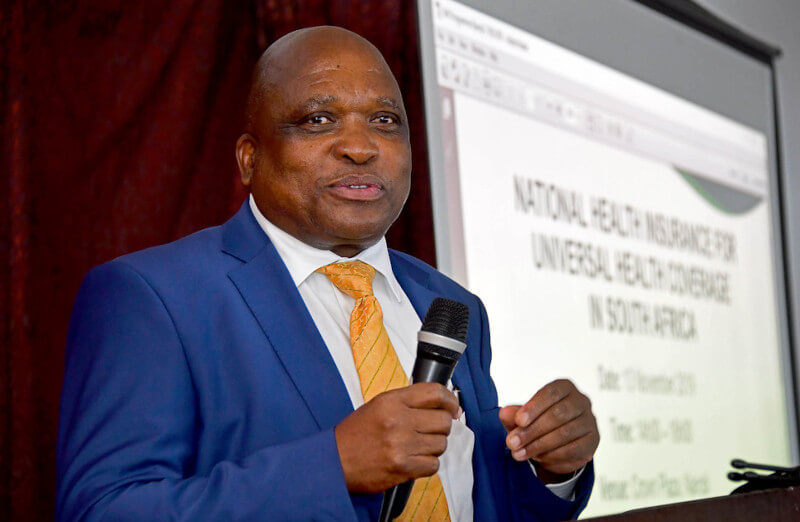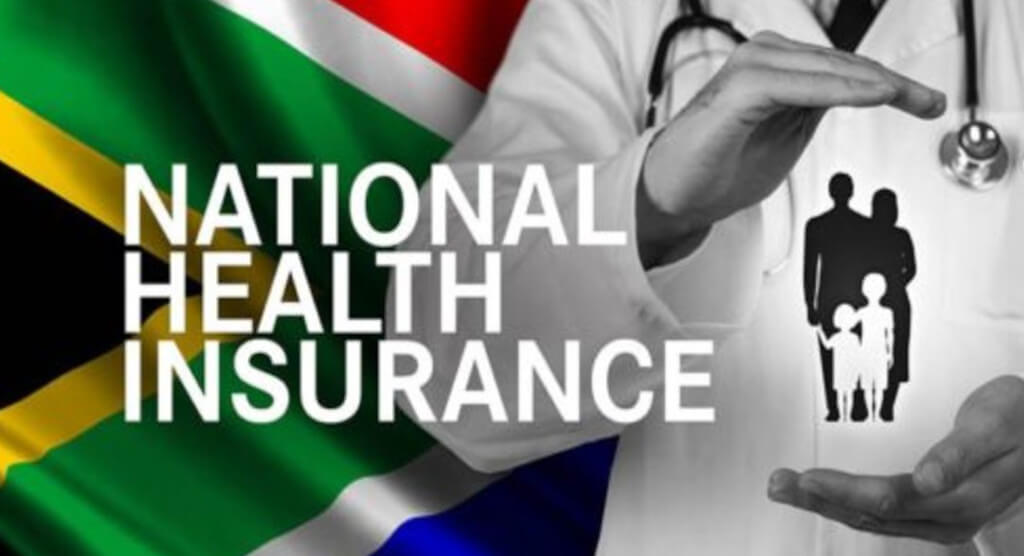Who, What, and When Can You Expect to Benefit From the South African National Health Insurance Bill?
The goal of Bill 11 of 2019 for South African National Health Insurance is to ensure that all South Africans, regardless of their financial situation, have access to high-quality, cost-effective medical treatment. The legislation was presented to lawmakers in August 2019. The NHI’s stated goal is to ensure that all South Africans, regardless of their financial situation, have access to quality healthcare. Let’s take a deeper look at the law, which has been the subject of heated debate and remains shrouded in mystery as to its feasibility and effectiveness.
Exactly What is the NHI bill in South Africa?
We briefly summarise the bill’s prologue, which states its goals as follows:
To Ensure That Everyone Has Access to High-quality Medical Care
To establish processes for the fair, successful, and effective utilisation of Fund resources to satisfy the medical requirements of the population growth; to avoid or restrict unwelcome, illegal, or unconstitutional practises about the Fund or its consumers; and to cater to issues linked herewith, a National Health Insurance Fund shall be established. Its goal is to ensure that all citizens of South Africa have access to high-quality medical care at affordable prices by redistributing the country’s healthcare budget.
A Person’s Ability to Pay Will No Longer Affect the Kind of Treatment They or Receive
As a result, everyone will receive a fairer share of the healthcare services provided by hospitals, clinics, doctors, specialists, dentists, and healthcare employees.
What Impact Will the NHI Have on South Africa’s Existing Medical Aids?
Medical assistance and other private healthcare providers are extremely worried about the NH. What will happen to private medical aid in South Africa now that the NHI has been implemented? Will the NHI even allow them to stay in business?
Medical plans will only be authorised to offer “complementary or top-up cover” that does not “overlap with the personal health care service benefits purchased by the National Health Insurance Fund on behalf of users,” as stated in Section 33 of the NHI bill. However, Section 33 has been generally interpreted to mean that private medical schemes will cease to operate since their current members will be required to utilise the NHI. This is even though the law provides for private schemes to provide gap insurance.
Alan Fritz, from Medshield Medical Scheme, thinks those worries are overblown. He thinks that, like in the UK and Australia, commercial programmes and a public health system may coexist so long as both adopt innovative methods that contribute to differing minimum benefit packages.
However, significant skepticism and uncertainty persist. The administration is committed to enacting the NHI with Nicholas Crisp serving as the Deputy Director-General in charge of its implementation. Despite confusion over how to pay for such a complicated system between the Department of Health and the National Treasury, this has occurred.
Given the disorganised status of the current state-run health system, the private sector has serious reservations that the government can construct and properly manage such a massive and complicated system. The government recognises a severe lack of skills necessary for the NHI but does not specify what it plans to do to address the issue. Feedback from many private healthcare professionals saying they will leave the nation if the NHI is implemented has only served to exacerbate this unfortunate state of affairs.
When Will South Africa Start Implementing the NHI?

According to Minister of Health Joe Phaahla, the White Paper adopted by the Cabinet in June 2017 serves as the basis for the NHI’s creation and rollout. This White Paper suggested a staggered rollout of the plan. As a result, it is expected that the system would roll out in two distinct stages. The final, and longest, stage will begin this year and be completed by 2026.
The National Health Care Reform Act
National Health Insurance was a prominent topic of discussion during the Public Health Association of South Africa Conference in Durban in 2022. While many in South Africa agree that an NHI is a good idea in concept, many have serious concerns about how it would be implemented. Some of the main themes that emerged are as follows:
- Despite widespread agreement on the need for universal health insurance, it is important that this law not be mistaken for a silver bullet. Healthcare in South Africa has been plagued by systemic issues, which must be aggressively addressed. There needs to be immediate action taken to improve South Africa’s healthcare system.
- Critical factors also include the availability of resources, expertise, and capacity.
- Primary healthcare and health promotion were needed more than curative and palliative care.
- It is important to clarify the new financial and grant-related roles and responsibilities.
- The private sector’s participation in the NHI should be specified more precisely.
- Those who are given authority in the NHI should not be affiliated with any particular political party. The NHI Board shouldn’t be a platform for partisan politics.
The Uncertainty Surrounding NHI’s Finances is Cause for Serious Concern
Sections 36 through 40 of the NHI bill, which deals with the granting of a “certificate of need,” were recently ruled illegal by the High Court. The legislation would make it illegal for medical professionals to begin working without this certification. The Minister of Health, Joe Phaahla, has stated that this verdict will not derail the bill.
The Pros and Cons of South Africa’s National Health Insurance Program
The following are some of NHI’s many positive outcomes in South Africa:
- The gap between top-tier and bottom-tier medical treatment, which has been widening for some time now, will be closed. State-provided healthcare is currently vastly inadequate, thus many people who cannot afford private healthcare go without it. The private sector attracts the bulk of funding and, hence, the most qualified medical professionals. Huge numbers of people would gain from having access to a national health insurance programme.
- The NHI has the potential to improve healthcare in South Africa by establishing norms that are more stringent than those at many of the country’s hospitals and clinics. Poorer South Africans will be able to afford the medical care they need.
- Many public hospitals and clinics will receive service enhancements to bring them up to National Health Service (NHS) standards for cleanliness, safety, and quality of care.
- The cost to the patient will be laid forth. There will be no out-of-pocket expenses or depletion of health insurance coverage. All medical care received through the NHI will be paid for by the members’ predetermined monthly contributions.
- Due to the NHI’s increased funding for public health centers, workers in that field should receive higher wages.
Some potential drawbacks of a national health insurance plan are as follows:
- A lack of healthy competition may lead to lagging standards and innovation, as competition is a well-known driving force in every business. Will state-of-the-art standards be consistently maintained when the government alone is responsible for supplying and managing South Africa’s massive and complex medical service? Couldn’t we take a page out of SAA and Eskom’s books?
- The National Health Insurance Program will require astronomical sums to launch. Initial estimates are at around R500 billion. If not from taxes, where will these staggering sums be obtained? South Africans may expect to pay more in taxes, say the experts.
- Given the uncertainty surrounding NHI funding, it is unclear what services will be provided under the NHI.
- As many existing public hospitals and clinics will be unable to fulfil the new NHI criteria, it is possible that the number of healthcare practitioners and/or facilities could decrease. With fewer buildings comes fewer people to do the work. Long wait times for emergency care could become the norm.
- It’s possible that patients who are accustomed to the quality of existing private health- and medical care would notice a considerable decline in quality while still paying the same or similar sums.
- Many doctors and nurses may leave the country if they are forced to work under the new administration.
What Are Our Concerns for the Future?
We see the following problems with NHI:
- Can we count on the NHI to last? There are plenty of non-government healthcare organisations that disagree.
- In light of the current state-run healthcare system’s failure, does the government have the expertise to establish and manage this massive healthcare system?
- What if a large number of South Africa’s healthcare professionals just refuse to operate under the NHI’s stringent conditions?
- The future of medical aids is uncertain.
- Shouldn’t we listen to the Treasury’s concerns that there aren’t enough tax revenues to sustain the NHI’s operations?
- Shouldn’t consideration be given to the Department of Health’s safety concerns regarding the possibility of corrupt management?

